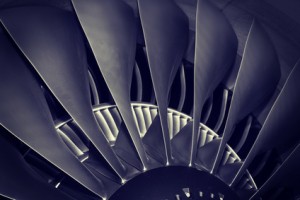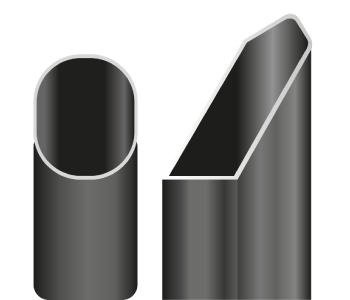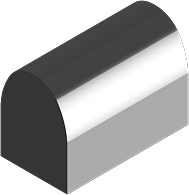Nickel Incoloy 909
View AMS Numbers >
Nickel Incoloy 909
Nickel Incoloy 909 is a nickel-iron-cobalt alloy which is widely used in precision engineering due to its high strength and minimal thermal expansion. As is the case with all Incoloys, the Incoloy 909 features excellent corrosion/oxidation resistance, high strength at high temperatures, and exceptional material and surface stability under harsh conditions. Combining the above characteristics brings the Incoloy 909 in the category of high-performance “superalloys”, the development of which is based on the application of pioneering chemical and processing methodologies.
Tech Steel & Materials offers Nickel Inconel Alloy 909 in 3 sub-type specifications, each in multiple and customized shapes/forms:
- AMS 5884 (Bar, Forging, Ring or Custom Tube)
- AMS 5892 (Sheet and Strip)
- AMS 5893 (Bar, Forging, Ring or Custom Tube)
We offer a fully customized line of tube drawing and seamless tubing. To learn more about our custom tubing services click here: Custom Tubing for Your Unique Application
The Composition of Nickel Incoloy 909
The composition of the particular alloy is the following:
| Nickel | Cobalt | Niobium | Titanium | Manganese | Silicon | Copper |
| 35%-40% | 12%-16% | 4.3%-5.2% | 1.3%-1.8% | 1% | 0.25%-0.5% | 0.5% |
Other elements found in smaller concentrations or even traces in the nickel alloy include Carbon, Phosphorus, Sulfur, Tantalum, Aluminum, Boron, and Iron.
Fabrication
The fabrication of Incoloy 909 is considered relatively easy, as it responds well to machining, welding, hot forming, and heat treatment processes. The process is the following:
- Hot Forming – This process is taking place at a temperature range of 1600°F to 2050°F (870°C to 1120°C) following a three-step forging sequence. The steps are aimed at producing coherent crystallization in the material along with a grain refinement.
- Welding – Welding Nickel Incoloy 909 can be done by the use of the standard gas-tungsten arc process, while the surface preparation is not complicated.
- Machining – Conventional high-performance nickel alloy machining tools are suitable and adequate for this alloy. For extensive “rough” machining, it is suggested that it takes place while the alloy is still in the annealed condition, so it’s softer and the cutting tools will have less wear.
- Heat Treating – The hardening process comprises a heating step of 1328°F (720°C) for a duration of eight hours followed by a furnace cooling at 131°F (55°C) for an hour.
Mechanical and Physical Properties
The mechanical properties of the Nickel Incoloy 909 are what makes it so valuable. More specifically, the fact that it retains a high level of its room temperature strength to temperatures that go up to 1202°F (650°C). In addition to that, the 909 is especially resilient to stress-accelerated grain-boundary oxidation, so creep cracks are not common in this alloy. If treated at over-aging heating, the alloy gains an additional resistance to grain-boundary oxygen embrittlement, but this is not a typical process. Finally, its very low thermal expansion coefficient means that it elongates only slightly with temperature increase. The coefficient of expansion of this alloy is 7.7 μm/m/OC, and this remains stable to up to 797°F (425°C), allowing for precision designs. From that temperature and up, the alloy changes from ferromagnetic to paramagnetic and its thermal expansion coefficient value rises exponentially.
The properties of strength and elongation of Incoloy 909 is shown in the following table for room and maximum safe operational temperature.
| Temperature | Yield Strength (0.2% Offset) | Tensile Strength | Elongation (%) | Reduction Area (%) | |||
| Ksi | MPa | Ksi | MPa | ||||
| 70°F | 20°C | 150 | 1034 | 185 | 1276 | 15 | 30 |
| 1200°F | 650°C | 125 | 862 | 150 | 1034 | 25 | 60 |
Finally, the physical properties of Incoloy 909 can be summarized in the following:
| Density | 8.19 g/cm3 |
| Melting Temperature | 2606°F (1430°C) |
| Curie Point | 851°F (455°C) |
| Young’s Modulus | 159 GPa |
| Shear Modulus | 59 GPa |
The corrosion resistance properties of the super-alloy are somewhat limited by the absence of chromium. Chromium is not included in the composition as that would increase the thermal expansion rate and defeat the purpose of creating this specialized alloy. However, the added protection against oxidation comes in the form of a protective coating that is applied to it.
Common Uses of Nickel Incoloy Alloy 909
Thanks to the aforementioned properties, Incoloy 909 is used in aerospace, energy production, aircraft, marine, and all engineering applications that call for tight tolerances and very small clearances. Some examples include gas turbines, rocket-engine thrust chambers, ordnance hardware, springs, steam-turbine bolts, gauge blocks, instrumentation, glass-sealing applications, and many more.
Select AMS Number:
| AMS Number | Alloy | Type | UNS | Cross Ref. Spec | Misc./Shape | |
|---|---|---|---|---|---|---|
| AMS 5884 Custom Tube | Incoloy 909 | Nickel | N19909 | - | Custom Tube |
 |
| AMS 5884 Incoloy 909 Bar | Incoloy 909 | Nickel | N19909 | - | Incoloy 909 Bar |
 |
| AMS 5884 Incoloy 909 Forging | Incoloy 909 | Nickel | N19909 | - | Incoloy 909 Forging |
 |
| AMS 5884 Incoloy 909 Ring | Incoloy 909 | Nickel | N19909 | - | Incoloy 909 Ring |
 |
| AMS 5892 Incoloy 909 Sheet | Incoloy 909 | Nickel | N19909 | - | Incoloy 909 Sheet |
 |
| AMS 5892 Incoloy 909 Strip | Incoloy 909 | Nickel | N19909 | - | Incoloy 909 Strip |
 |
| AMS 5893 Custom Tube | Incoloy 909 | Nickel | N19909 | - | Custom Tube |
 |
| AMS 5893 Incoloy 909 Bar | Incoloy 909 | Nickel | N19909 | - | Incoloy 909 Bar |
 |
| AMS 5893 Incoloy 909 Forging | Incoloy 909 | Nickel | N19909 | - | Incoloy 909 Forging |
 |
| AMS 5893 Incoloy 909 Ring | Incoloy 909 | Nickel | N19909 | - | Incoloy 909 Ring |
 |

 Tech Steel & Materials
Tech Steel & Materials